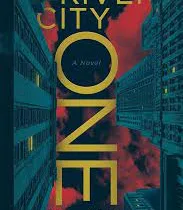On July 17, Rudyard Kipling’s poem in celebration of stoicism, “If—,” was scrubbed from a mural at Manchester University. Sara Khan, the “liberation and access officer” of the university’s student union, stated that “we, as an exec team believe that Kipling stands for the opposite of liberation, empowerment, and human rights—the things that we, as an SU, stand for.” It seems that since my days there eons ago little has changed at my alma mater’s student union, including pontificating on issues without actually studying them.
Though I have never been a great fan of Kipling’s poetry, I loved his prose, and he remains the youngest person ever to win the Nobel Prize in Literature. Reading the Just So Stories, Kim,and of course The Jungle Book increased my own childhood joys and enhanced my cultural sympathies. Kipling was a complex man, as are his writings. Even Edward Said of Orientalism fame noted Kim’s subtleties. Carl R. Trueman reports in First Things that “If—” is the favorite poem of Serena Williams, now fresh from another stellar performance at Wimbledon after becoming a mother. She even published a recording of herself reading a specially adapted version that substitutes “woman” for “man” to celebrate International Women’s Day.
Kipling’s noted poem now named “The Ballad of East and West” is another common victim of misplaced criticism, especially its famous opening line, “Oh, East is East and West is West, and never the twain shall meet,” one of the most misquoted lines in literature. I have many times heard it castigated by people who have clearly never read it as a racist division of humankind. In fact, the poem is a direct rejection of that opening sentiment.
The first two lines read:
Oh, East is East and West is West, and never the twain shall meet,
Till Earth and Sky stand presently at God’s great Judgment Seat.
The second line implies that indeed we all will in fact meet before God on Judgment Day, that ultimate eraser of human divisions, including racial divisions.
But Kipling explicitly disavows even this leavened sentiment, for the very next two lines read:
But there is neither East nor West, Border, nor Breed, nor Birth,
When two strong men stand face to face, tho’ they come from the ends of the earth!
Kipling is quoting the first two lines as expressing a view widely held, perhaps especially among his British compatriots in India, in order to repudiate it. He avers that not only the boundaries of East and West can be transcended but also borders, births, and, note, breed. A strange sort of racism this is, one that speaks deliberately of transcending the strictures of birth and breed.
This transcendence comes when “two strong men stand face to face,” which is the burden of the ballad. It tells how a tribal chief, Kamal (for whom the poem was originally named), in what is now Pakistan leads a raiding party on a British encampment and steals the British colonel’s prize mare. The colonel’s son sets off in pursuit and eventually catches up with him and shoots at Kamal, who in turn challenges him to see if he can ride as well as shoot. They ride until the son’s horse falters at dawn, at which point Kamal knocks the pistol out of the son’s hand. The British officer is now hemmed in by the chief’s men but declares that if they return his father’s horse he will fight his own way back. In recognition of his courage, Kamal raises the son to his feet, and the son in return offers the mare as a gift. Kamal declines and says he will return the horse outfitted in his own finery.
They have taken the Oath of the Brother-in-Blood on fire and fresh-cut sod,
On the hilt and the haft of the Khyber knife, and the Wondrous Names of God.
Having sworn to become a blood brother, Kamal also avows that since the colonel has sent his son to him, so the chief will send his only son in return.
All this reads much better in the fast-paced rhythms of the frontier ballad, but its points are clear enough. Strength and courage can overcome barriers of birth and race, and probably religion also. Kipling’s verse is now likely to be castigated as toxic masculinity, but it can hardly be racism.
Kipling drives this home by closing his poem with the same stanza that opens it:
Oh, East is East and West is West, and never the two shall meet,
Till Earth and Sky stand presently at God’s great Judgment Seat;
But there is neither East nor West, Border, nor Breed, nor Birth,
When two strong men stand face to face, tho’ they come from the ends of the earth.
Neither East nor West, Border, nor Breed, nor Birth.
—
Paul Marshall is Wilson Professor of Religious Freedom at Baylor University, a Senior Fellow at the Hudson Institute and the Religious Freedom Institute, and a Contributing Editor of Providence.
Photo Credit: Colorized photo of Joseph Rudyard Kipling. By Cassowary Colorizations, via Flickr.







 Live in the DC area? Sign-up for Providence's in-person events list!
Live in the DC area? Sign-up for Providence's in-person events list!